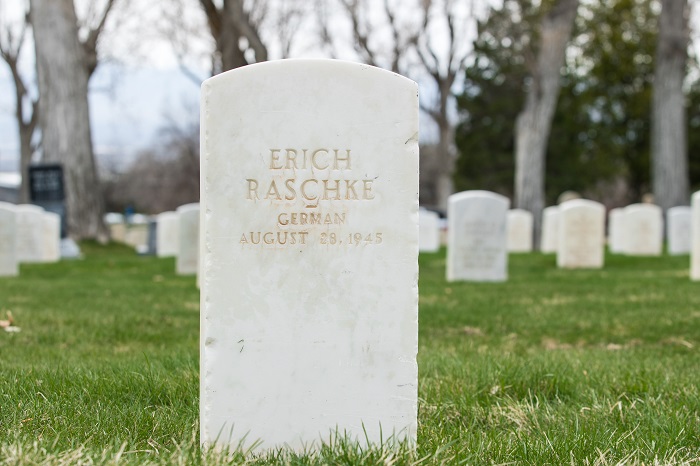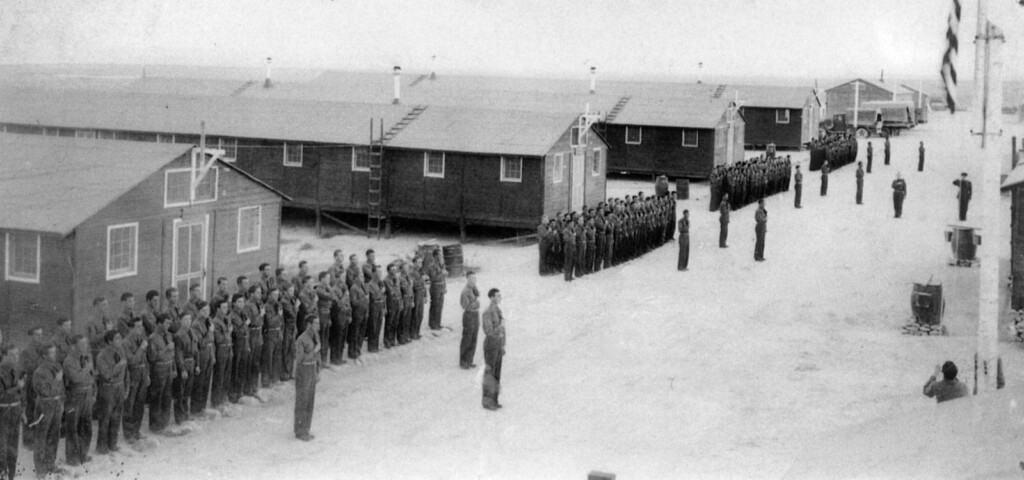
At Fort Douglas Military Cemetery, dead warriors rest in peace. Amongst the quiet rows are nine white grave markers with distinctly German names: Otto Bross … Ernst Fuchs … Gottfried Gagg … They all have the same date of death—July 8, 1945. This is no coincidence. For the past seven decades these weathered tombstones have borne silent witness to a war crime committed in Utah.
“It was tragic,” said Tim Morris, Director of the Fort Douglas Military Museum.
In World War II, General Erwin Rommel’s Afrika Korps became trapped between American and British forces. With their backs against the Mediterranean Sea, they fought desperate battles before surrendering in 1943.
In Salinas, a POW camp housed 250 of these German soldiers. They lived in tents and helped local farmers tend their beet crops. When the war in Europe ended in May 1945, their thoughts turned toward repatriation and home.
July 8 dawned as another summer day. The POWs worked in the fields under a Utah sun as hot as the one they felt in Libya, and then marched back to camp. That night, Private Clarence Bertucci got drunk before reporting for duty. He climbed the guard tower, loaded a .30 caliber machine gun, and sprayed over 200 rounds into the tents holding the sleeping Germans. “Get more ammo, I’m not done yet,” he shouted before being subdued. Nine POWs died, 20 were wounded; their blood staining the ground red.
The army court-martialed Bertucci and found him insane. Bertucci told the court that he killed the prisoners because he didn’t like Germans. He was sentenced to a mental hospital. After several years he was released and faded into obscurity before dying in 1969. The nine dead Germans also faded away. There would be no post-war Marshall Plan for them. They instead joined the long roll call of soldiers killed after they surrendered.
 Memorial Day remembers those Americans who have served their country. But there is a greater tribute that exists—a Valhalla that welcomes all fallen warriors, and perhaps in the Great Hall there is a special table set for those who fell after the last bugle sounded.
Memorial Day remembers those Americans who have served their country. But there is a greater tribute that exists—a Valhalla that welcomes all fallen warriors, and perhaps in the Great Hall there is a special table set for those who fell after the last bugle sounded.


